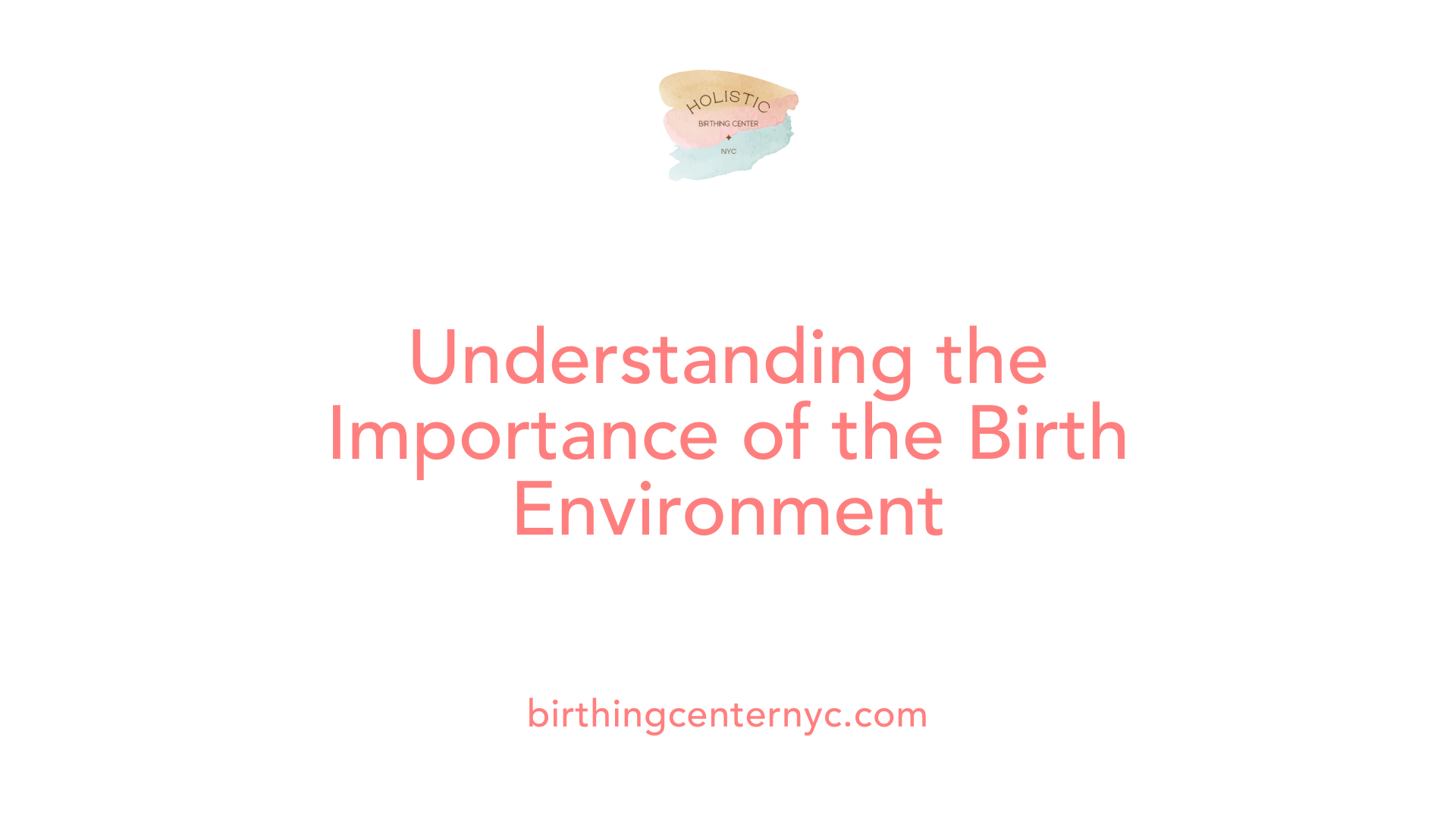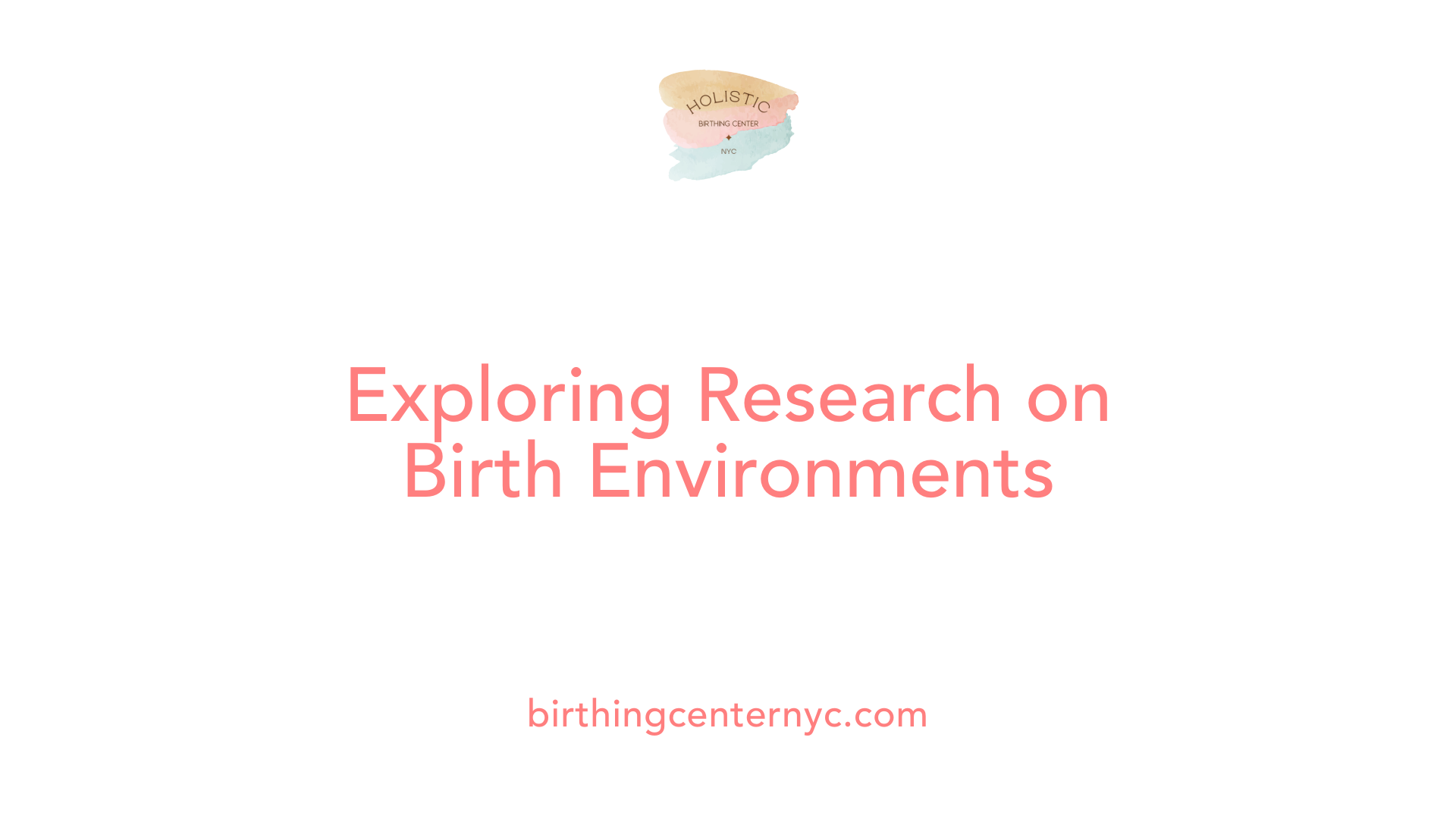The Importance of Creating a Comfortable Birth Environment
Crafting a Birth Space for Positive Childbirth Experiences

Introduction
The environment in which a woman gives birth holds immense potential to influence the physiological processes of labor, the comfort of the mother, and the overall childbirth experience. An understanding of the factors that contribute to a supportive birth setting can empower soon-to-be mothers and their support teams to optimize the birthing process for both mother and child. This article explores various elements that make up an ideal birth environment, drawing from research, best practices, and expert insights.
The Role of the Birth Environment in Supporting Physiologic Birth

Why is the birth environment important to support physiologic birth?
The birth environment is crucial for supporting physiologic birth as it can either facilitate or impede the natural process of labor. A calming atmosphere reduces stress hormones, which in turn enhances uterine blood flow and supports both maternal and neonatal health. With about 98.8% of U.S. women giving birth in hospitals, it's essential that these settings prioritize comfort, safety, and supportive care, including the presence of nurses and doulas.
The physiological impact of birth environment
Research shows that a positive birth environment can significantly influence laboring women's comfort and emotional well-being. Elements such as dimmable lighting, soothing sounds, and minimal distractions help create a serene space that promotes the release of oxytocin, facilitating the progression of labor. For instance, warm water immersion through birthing tubs can provide effective natural pain relief.
Importance of comfort and safety
Women feel more at ease in birth settings they perceive as safe and inviting. Whether at home, a freestanding birth center, or in a hospital, a welcoming atmosphere encourages relaxation, contributing to a smoother labor process. The presence of personal items and supportive loved ones also fosters an intimate and secure environment where mothers can express themselves freely.
Influences on labor progression
Studies indicate that a supportive and individualized approach to care can enhance labor outcomes. Women who have the freedom to control their birth environment and utilize various comfort measures—such as choosing labor positions or using aromatherapy—report higher satisfaction levels. Protecting their privacy and ensuring they have a compassionate support team further empower mothers to engage actively in their birthing experience, thus promoting quicker and healthier deliveries.
Creating a Positive Birth Environment: Key Elements and Strategies

Elements of a positive birth environment
Creating an uplifting birth environment can significantly affect a woman's experience during labor. Essential features include:
- Privacy: Ensuring that a woman feels secure and can focus on her body’s natural rhythms without interruptions.
- Comfort Facilities: Availability of ergonomic beds, birth balls, and soft bedding for better positioning and relaxation.
- Lighting: Dimmable and adjustable lighting enhances tranquility and reduces stress, helping the laboring person maintain a calm atmosphere.
Sensory stimulations for comfort
Incorporating sensory elements can amplify comfort during labor:
| Element | Description | Benefits |
|---|---|---|
| Soothing Sounds | Soft music or nature sounds help reduce stress. | Promotes relaxation and dispels anxiety. |
| Aromatherapy | Calming scents like lavender or vanilla can soothe. | Assists in relaxation and comfort. |
| Warm Water | Immersion in a tub for hydrotherapy. | Provides natural pain relief. |
Role of personal preferences
Each birthing experience is unique, and personal preferences play a crucial role in comfort.
- Personal Items: Bringing along items like photos, affirmations, or favorite pillows can create an atmosphere that feels more intimate and supportive.
- Communication: Effective dialogue with healthcare providers about preferences ensures that the birthing environment aligns with individual needs, enhancing overall satisfaction during labor.
By blending these various elements, women can achieve a nurturing and secure space that supports both physiological birth and emotional well-being.
The Ideal Environment for Birthing: Creating the Best Space

What is the best environment for birthing?
The best environment for birthing is one that fosters relaxation and reduces anxiety, which is crucial for a positive experience.
Characteristics of an optimal birthing space
Key factors include:
- Low, adjustable lighting: Promotes comfort and the release of oxytocin, necessary for labor progression.
- Comfortable temperature: Ensures a cozy atmosphere for the mother.
- Flexible room arrangement: Encourages movement and allows for changing labor positions, accommodating the mother's preferences.
Role of privacy and comfort
Privacy is essential, as it contributes to a sense of security. Women feel more at ease in settings where they can focus on their bodily sensations without interruptions. Familiar items and snacks can enhance comfort and stamina.
Utilization of sensory elements
Incorporating sensory elements such as soothing sounds and calming scents, alongside support from caregivers, plays a significant role in creating a tranquil space. Essential oils, like lavender, and comforting music can aid relaxation.
Overall, a well-thought-out birthing environment significantly impacts both the mother’s and baby’s outcomes during childbirth.
Research on Birth Environments: Insights and Outcomes

What are some research findings related to birth environments?
Research findings related to birth environments indicate that various environmental factors significantly influence women's childbirth experiences. These factors include:
- Privacy: Essential for women to feel secure, allowing them to focus on their body's natural rhythms without interruptions.
- Physical Comfort: Features like dimmable lighting, ergonomic beds, and access to water immersion help alleviate discomfort and promote optimal fetal positioning.
- Meaning-oriented Environment: Elements symbolizing motherhood, soothing sounds, and personal touches (like favorite photos) create emotional support during labor.
Studies also emphasize the need for calming surroundings with appropriate soundscapes and ambient lighting to promote a peaceful childbirth experience. The design of birthing rooms can differentiate between an institutional setting—often perceived as impersonal—and a personal space that encourages agency and empowerment.
Influence of physical and emotional factors
An ideal birth environment fosters tranquility, promoting the release of oxytocin, which aids in labor progress. Conversely, a stressful setting that induces adrenaline release can hinder this natural process. A tranquil atmosphere prioritizes:
- Comfort options: Such as birth balls and hydrotherapy, which support physical well-being.
- Soothing sounds: Soft music and nature sounds that reduce stress and enhance relaxation.
- Supportive team: Compassionate midwives or doulas who provide essential emotional and physical support throughout the birthing process.
Impact on maternal and neonatal outcomes
The improved design and concept of birth environments positively impact both maternal and neonatal outcomes. Enhanced comfort and privacy can lead to reduced medical interventions and increased satisfaction with care. Research also indicates that familiar and calming settings are associated with positive birth experiences, increased likelihood of spontaneous vaginal deliveries, and successful breastfeeding initiation.
Overall, creating a supportive, comfortable birth environment is critical in ensuring a positive experience for both the birthing person and the baby, ultimately contributing to better health outcomes.
Facilitating a Positive Birth Experience: Environmental and Holistic Approaches

What environmental and holistic changes are needed to facilitate a positive birth experience?
To facilitate a positive birth experience, several environmental and holistic changes are essential. Creating a physically secure space that offers privacy and comfort is paramount. This includes providing ergonomic beds, dimmable lighting, and areas for personal items that enhance the birthing environment.
A soothing atmosphere that embraces both spiritual and emotional needs contributes significantly to reducing stress. Such an environment minimizes noise pollution and incorporates thoughtful design elements within labor, delivery, recovery, and postpartum (LDRP) units. Features like soft music, aromatherapy, and calming visuals can promote relaxation and support natural pain relief mechanisms.
Holistic approaches to childbirth
Holistic approaches recognize the interconnectedness of body, mind, and spirit. Empowering women during labor through agency and control is vital; allowing them to select their preferred positions or use tools like birth balls and water immersion vastly improves comfort. Communication with compassionate birth support personnel, such as midwives or doulas, enhances both emotional and physical support throughout the process.
Improving maternal satisfaction and outcomes
Ultimately, a woman-centered approach that prioritizes personal preferences leads to improved maternal satisfaction and outcomes. Research shows that familiar environments tend to correlate with fewer medical interventions, increased likelihood of spontaneous vaginal births, and heightened breastfeeding success. By focusing on a tranquil birth environment that prioritizes privacy, comfort, and supportive care, the overall childbirth experience becomes much more positive and empowering for women.
Conclusion
In crafting the ideal birth environment, it is essential to consider the physical, emotional, and psychological needs of the birthing person. By prioritizing comfort, safety, and personalized care, a supportive birth setting can facilitate a smoother labor process and enhance the overall childbirth experience. Whether choosing to birth at home, in a birth center, or a hospital, understanding and optimizing the birth environment can empower women and their families, leading to better health outcomes and memories to cherish for a lifetime.
References
- Importance of the Birth Environment to Support Physiologic Birth
- Making childbirth a positive experience
- Creating a Calm Atmosphere for Your Labor - Virginia Hospital Center
- Environmental factors influencing women's childbirth experiences in ...
- The influence and meaning of the birth environment for nulliparous ...
- Women's Experiences of Physical Features in a Specially Designed ...
- Factsheet – Creating a positive birth space environment | All4Birth
The Importance of Creating a Comfortable Birth Environment
Questions? We're Here to Help!
Give us a call and speak with our knowledgeable staff.




